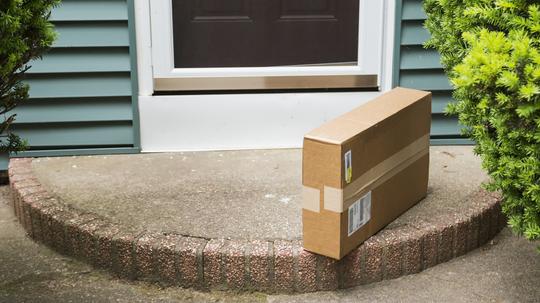
As delivery services cater to restaurants and retailers, a Chicago-based startup wants to help convenience stores enter the direct-to-consumer delivery market.
Vroom Delivery, an e-commerce platform that allows convenience stores to deliver their goods to consumers, tied in third place with Taplingua, a startup that allows hotels to train their frontline workers in foreign language skills, in the University of Chicago’s first Alumni New Venture Challenge. In addition to winning $15,000 in the New Venture Challenge, the startup also won $55,000 in The MBA Fund’s pitching contest, Sieva Kozinsky, the MBA Fund’s general partner, confirmed via email.
The funding will allow the company to keep operating while it raises a seed round of funding, said John Nelson, CEO of Vroom Delivery. The company, which now has a team of about four contract workers, is also in talks with investors to raise additional funding to hire more staffers, especially a director of sales and developers to work with Nelson’s brother and Vroom Delivery CTO Jeffrey Nelson.
Nelson said the idea to start the company originated from his father, who previously owned convenience stores in Texas. Nelson said he wanted to enter the e-commerce market by finding a way to deliver food and other convenience store goods directly to customers. That led to building the prototype of the Vroom Delivery platform. If it worked well for their father’s businesses, they would market it to other convenience store chains, he said.
“The traditional model for convenience [stores] was just physical proximity to people’s homes,” Nelson said. “Now with the emergence of all of these delivery type operations… they risk being ‘out-convenienced’ when someone like Amazon or goPuff will bring it to your door.”
Vroom Delivery charges an undisclosed set-up fee to onboard chains onto the platform and charges consumers a transaction fee for each purchase, Nelson said. The company currently has four convenience store chains signed up to its platform, two of which are live and another two are being on-boarded to the platform. The four chains signed up on the platform have less than 200 stores, but they’re not at the point where they’re delivering from every location, he said.
The company typically targets midsize convenience store chains with 10 to more than 100 locations, Nelson said. Unlike other delivery platforms, the convenience stores on the platform employ the delivery drivers. Employing the delivery drivers allows delivery drivers to earn a standard wage in addition to tips and lets chain owners to ensure control over who will deliver goods to people’s homes, thus representing their brand, he said.
Right now, the company is focused on bringing on as many partner stores as possible, but Nelson said the company could foresee partnering with brands like Anheuser-Busch or Coke to bring goods directly to customers’ homes in areas where home delivery isn’t an option.
Though web-based delivery competitors like Amazon and goPuff are building brick-and-mortar stores and warehouses to deliver to consumers, convenience store chains already have the infrastructure but require more overhead to open up new locations, Nelson said. With Vroom Delivery, convenience stores can hire drivers to service new areas without spending a lot of capital to expand, he said. In 2019, the U.S. convenience store industry reached $31 billion in revenue, according to the market research firm IBIS World.
“Amazon Prime now has convenience type offerings; they’re delivering beer in some cities, so you’re definitely seeing that sort of at home model blowing up,” Nelson said. “These older businesses are going to lose sales if they don’t do something about it.”








